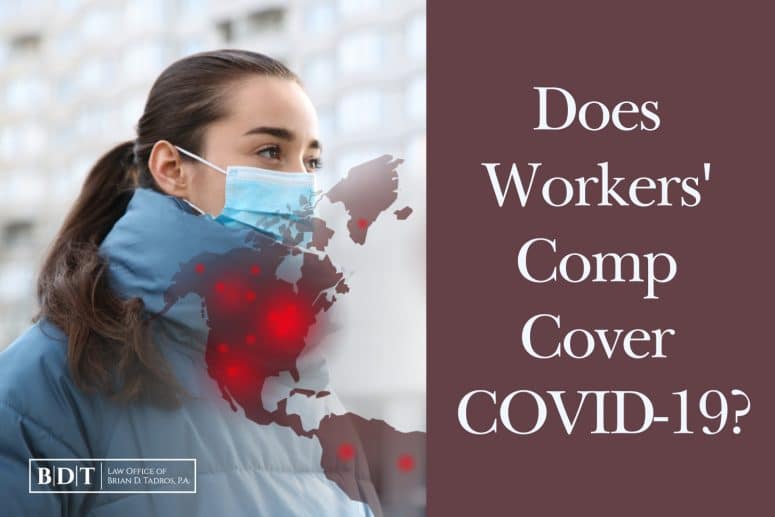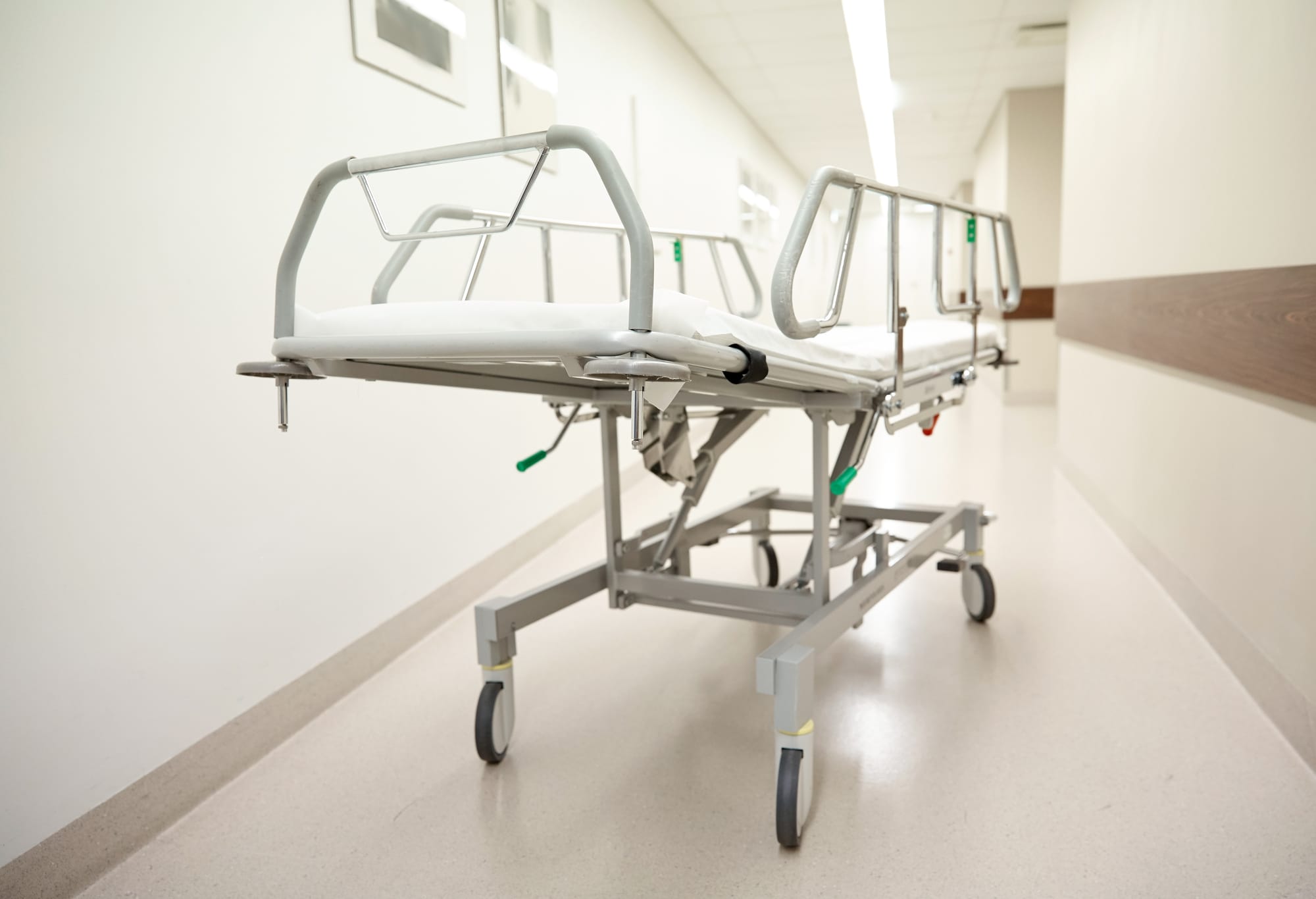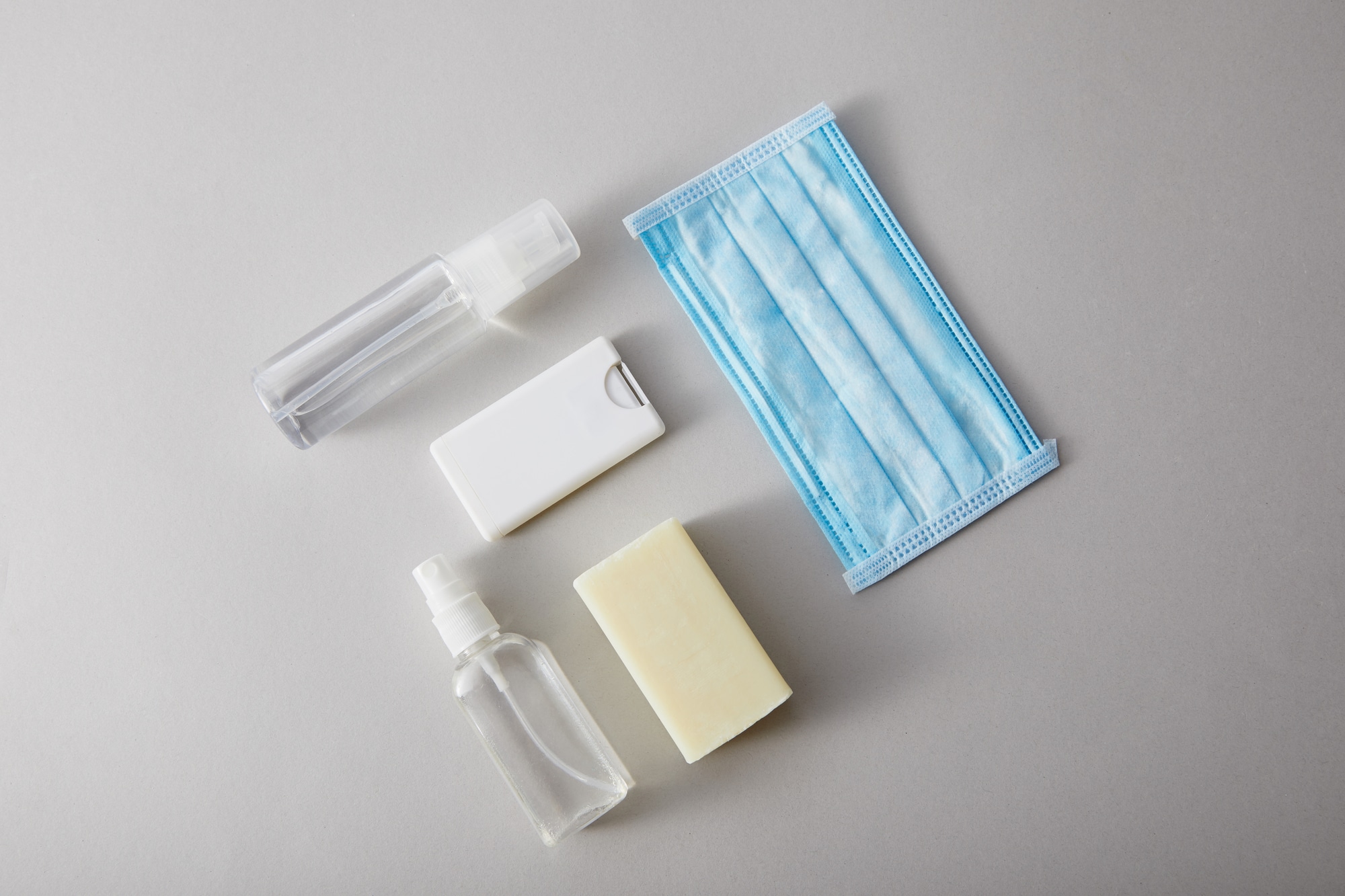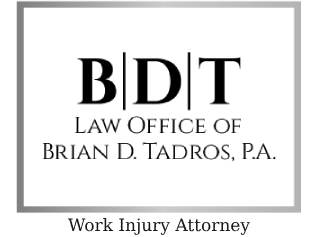
Workers’ comp was designed to provide reimbursement for injury and illness
So where does COVID-19 fit in?
You probably already know that the workers’ compensation system was designed to compensate workers who fall ill or become injured as a result of their employment.
But as a global pandemic still looms, it’s worth asking: “What happens if I contract the virus at work? Will I be compensated?”
Given the novelty of the virus, the relationship between workers’ compensation and COVID-19 is not well-established. But Florida law and recent memorandums can give us a clue as to how COVID-19 workers’ comp claims are likely to be handled in the future.
Injured at Work In Florida?
Does Workers’ Comp Cover COVID-19?
For most Florida workers, the most burning question is: “If you test positive for COVID-19, are you eligible for workers’ comp benefits?”
Workers’ compensation benefits might cover a COVID-19 diagnosis in a few specific circumstances and there are very strict rules as to what constitutes an “occupational disease.”
Florida Statute 440.151(2) defines an occupational disease as one “which is due to causes and conditions which are characteristic of and peculiar to a particular trade, occupation, process, or employment, and to exclude all ordinary diseases of life to which the general public is exposed, unless the incidence of the disease is substantially higher in the particular trade, occupation, process, or employment than for the general public.”
This verbiage is why you cannot collect workers’ comp checks after, say, a flu diagnosis, even if you suffer from lost wages as a result. The illness you contract must not only be “characteristic of and peculiar to” your place of work, it must also be “substantially higher” than it is anywhere else.

This is probably why Florida’s Chief Financial Officer issued a directive on March 30, 2020 allowing those on the front lines—namely, healthcare workers, first responders, child safety investigators, and the like—to receive workers’ comp benefits if they contract the virus during the course of their work. These individuals are not only essential, they deal with certain populations in such a way that heightens their risk of becoming infected with COVID-19.
In short, they would be covered because they’re more likely to get the virus while at work.
However, COVID-19 is not like your run-of-the-mill cold or flu. It is a global pandemic, and such desperate times may call for more desperate measures.
To reinforce the CFO’s memo on April 1, the Florida Office of Insurance Regulation (OIR) issued a memo on April 6, 2020 that stated: “First responders, health care workers, and others that contract COVID-19 due to work-related exposure would be eligible for workers’ compensation benefits under Florida law” (emphasis mine).
It’s likely that the “others” listed here refers to the other examples of “front line” employees listed in the CFO’s memo, but only time (and a few court rulings) will tell.
Collecting Benefits
So you tested positive for COVID-19 and you’re pretty sure you got it at work. What should you do?
First of all, you should understand that it will be very hard to definitively prove to a Judge of Compensation Claims that you contracted the virus at work and not during your normal daily activities, such as making a Publix run or going to a restaurant—especially if you’re not a healthcare worker or other form of first responder.
Because the coronavirus is so widespread throughout Florida, it is highly likely that the vast majority of COVID-19 workers’ comp claims will be denied.

The second thing to keep in mind is that workers’ comp will only compensate you for lost wages and/or medical treatment costs, not just for getting the disease. If your symptoms were mild enough to allow you to continue working remotely, or you otherwise had no lost wages caused by contracting of the virus (as opposed to being furloughed because of the pandemic), and you did not need any medical treatment, the workers’ comp program will not benefit you.
If you think you may have a case, it is definitely worth getting a workers’ comp attorney to advise you.
Reducing Your Exposure
As we’ve said before, injury and illness prevention is preferable to treatment. Here are some steps that employees and employers can take to reduce their risk exposure.
Employees should wear PPE (i.e. face masks, shields, partitions), sanitize their hands and workstations, avoid touching their face, and practice social distancing during work hours. If any employee is experiencing symptoms, s/he should stay home until they have been cleared by a doctor.
On the other side of the equation, employers should create a culture that reduces viral exposure as well as legal liability in the event an employee contracts the virus. Even if you ask clients and employees to sign waivers, you can (and probably will) be held liable if someone can prove that you were negligent in your efforts to keep others safe.

If your business or industry precludes remote work, make sure employees have the tools and resources they need to protect themselves. This may include things like installing touch-free hand sanitizing stations; rewriting your sick leave policy; and reorganizing workstations to keep employees, clients, and customers 6+ feet apart.
In general, employers have a lot of control over the work environment and thus can enforce any such rules and guidelines more easily than one single employee. Make sure you are enforcing social distancing rules and doing your part to keep sick employees out of the workplace.
Conclusion
Because the virus is still so new, there’s a lot we are still learning—not only in regards to stopping it, but also in dealing with its effects.
That being said, Florida officials have attempted to provide assistance, as noted above, regarding how COVID-19 fits into the workers’ comp framework. At the moment, healthcare workers, first responders, child welfare officers, and other “front line” employees have a chance at receiving compensation for lost wages and medical treatments they experience as a result of getting COVID-19.
However, as the state begins to open up, it is reasonable to expect that a lot more Florida workers will start to question whether they, too, have a right to workers’ compensation.
If you believe that you contracted COVID-19 (or any other illness or injury) as a direct result of your work environment, contact the Law Office of Brian D. Tadros today for your free consultation. It is our privilege and pleasure to advise our clients on all potential outcomes and issues regarding their case so they can make an informed decision of what to do next.

